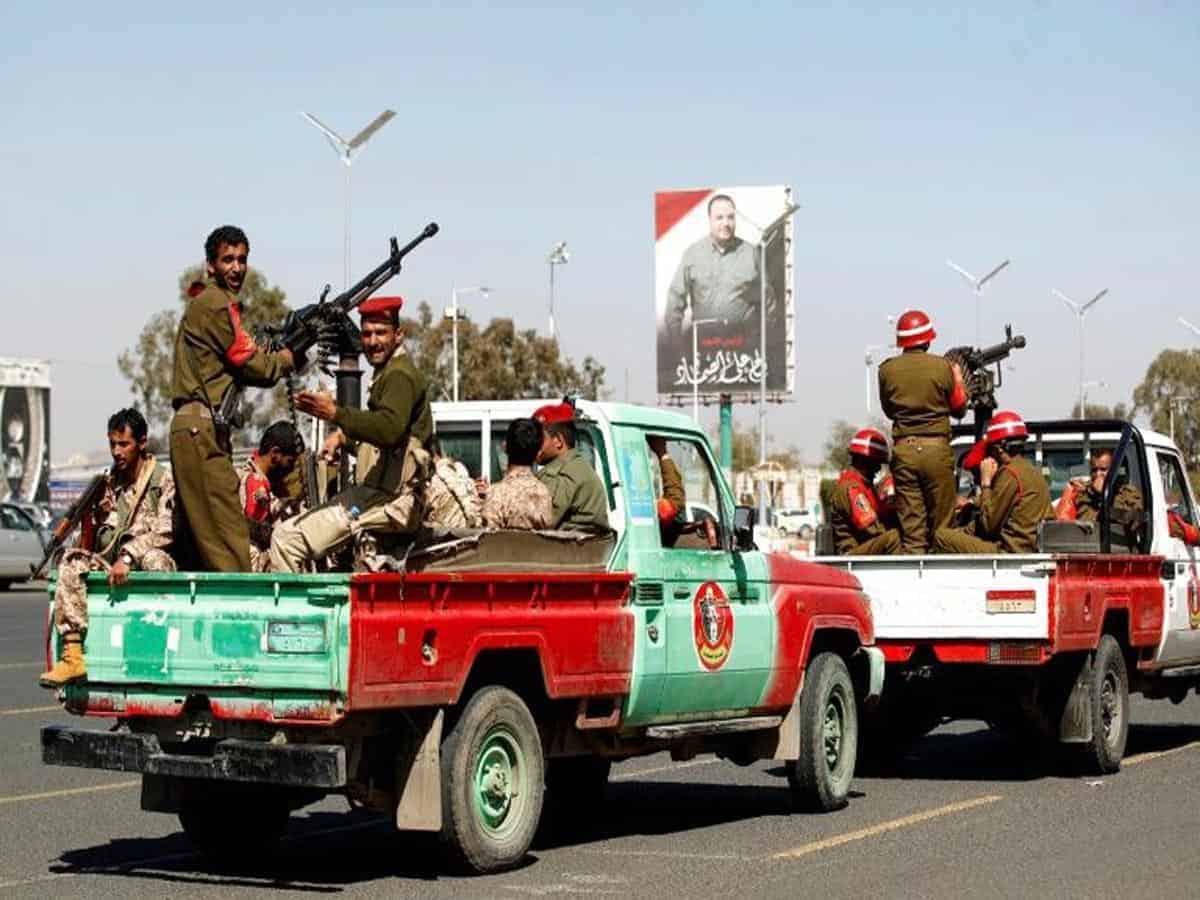Dubai: More than 100 people were killed and dozens wounded in a missile and drone attack blamed on Huthi rebels in central Yemen, officials said Sunday.
Saturday’s strike follows months of relative calm in the war between the Iran-backed Huthis and Yemen’s internationally recognised government, which is supported by a Saudi-led military coalition.
The Huthis attacked a mosque in a military camp in the central province of Marib — about 170 kilometres (105 miles) east of the capital Sanaa — during evening prayers, military sources told AFP.
“We strongly condemn the terrorist attack on a mosque by the Huthi militias… which left more than 100 dead and dozens injured,” the Yemeni foreign ministry said on Twitter.
An army spokesman said that the dead included soldiers and civilians, and that the Huthis would face a “ruthless” retaliation to the strike.
The victims were transported to a Marib city hospital, where a medical source earlier gave a toll of 83 dead and 148 injured.
Death tolls in Yemen’s grinding conflict are often disputed, but the huge casualty list in Marib represents one of the bloodiest single attacks since the war erupted in 2014 when the rebels seized Sanaa.
The Huthis did not make any immediate claim of responsibility.
Saudi-owned Al-Hadath television broadcast a video that it said showed the gruesome aftermath of the attack.
Body parts can be seen on the floor among shredded debris. Blood is pooled on the carpet and spattered against the walls.
The drone and missile strike came a day after coalition-backed government forces launched a large-scale operation against the Huthis in the Nihm region, north of Sanaa.
Fighting in Nihm was ongoing on Sunday, a military source said according to the official Saba news agency.
“Dozens from the (Huthi) militia were killed and injured,” the source added.
– ‘Stop escalation now’ –
Yemeni President Abedrabbo Mansour Hadi denounced the “cowardly and terrorist” attack on the mosque, Saba reported.
“The disgraceful actions of the Huthi militia without a doubt confirm its unwillingness to (achieve) peace, because it knows nothing but death and destruction and is a cheap Iranian tool in the region,” it quoted Hadi as saying.
United Nations envoy Martin Griffiths condemned the aerial attack and what he said was the escalation of military activities in three governorates “where airstrikes, missiles and ground attacks reportedly took place”.
“I have said before that the hard–earned progress that Yemen has made on de-escalation is very fragile. Such actions can derail this progress,” he said in a statement.
EU foreign policy spokesman Peter Stano said in a statement late Sunday that “all parties should show restraint and engage constructively with the UN Special Envoy to end the conflict.”
“The EU will continue supporting the UN in achieving this with all the tools at its disposal,” he added.
– Famine risk –
Just last week Griffiths had welcomed what he described as “one of the quietest periods of this conflict”, in a briefing to the UN Security Council in which he warned the lull could not be sustained without political progress.
A year after Yemen’s warring sides agreed to a UN-brokered truce for the key Red Sea port city of Hodeida and its surroundings, fighting in the province has subsided, but the slow implementation of the deal has quashed hopes for an end to the conflict.
The landmark agreement signed in Sweden in December 2018 had been hailed as Yemen’s best chance so far to end the fighting that has pushed the country to the brink of famine.
Tens of thousands of people, mostly civilians, have been killed and millions displaced in the war that has ravaged the country, triggering what the UN describes as the world’s worst humanitarian crisis.
Saudi Arabia and its allies intervened in the conflict to back the government against the Huthis in March 2015, shortly after the rebels seized control of Sanaa.
A senior UN official warned Thursday that certain key factors that threatened to trigger a famine in Yemen last year were once again looming large, including a plunge in the value of the national currency.
“With a rapidly depreciating rial and disrupted salary payments, we are again seeing some of the key conditions that brought Yemen to the brink of famine a year ago,” Ramesh Rajasingham, who coordinates humanitarian aid in Yemen, told the UN Security Council.
“We must not let that happen again,” he said.

